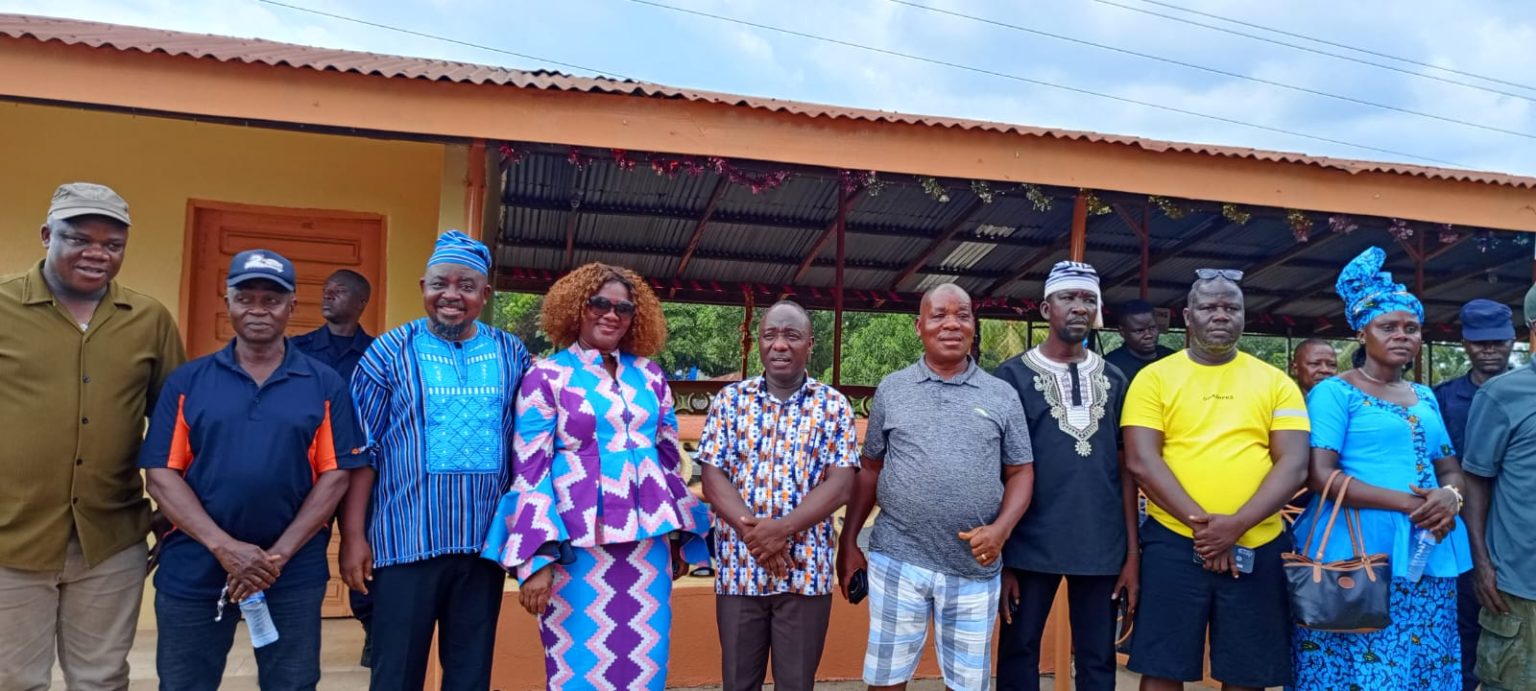Bong County Council’s US$385,000 Investment in Education and Heritage: A Detailed Overview
The Bong County Council in Liberia has taken a significant step towards bolstering education and preserving cultural heritage by approving a US$385,000 development plan. This initiative encompasses the restoration of the historic Presidential Palace and the construction of a junior high school in Kolli-ta Wolah. The decision, reached during a special session held on April 7, 2024, reflects the Council’s commitment to investing in both the tangible and intangible assets of Bong County. The project signifies not just infrastructural development, but also a symbolic reclaiming of the region’s identity and a stride towards a brighter future for its youth.
The original proposal submitted by the County Administration outlined a budget of US$390,000, with US$315,000 allocated for the Presidential Palace renovation and US$75,000 for an elementary school in Kolli-ta Wolah. However, after careful deliberation and amendments, the Council approved a revised budget of US$385,000. The allocation for the Presidential Palace was reduced to US$280,000, while the US$75,000 earmarked for education remained unchanged. Crucially, the Council, guided by the insights of youth representative Miller Bondo, decided to upgrade the planned elementary school to a junior high school, recognizing the greater need for secondary education in the region. This modification underscores the Council’s responsiveness to community needs and its commitment to maximizing the impact of its investments.
The Presidential Palace, a historical landmark in Bong County, holds deep cultural significance. Its restoration represents more than just a physical renovation; it signifies a conscious effort to preserve the region’s heritage and reaffirm its identity. The dilapidated state of the Palace had become a symbol of neglect, and its revitalization is expected to instill a sense of pride and reconnect the community with its past. This project is not simply about restoring a building; it’s about restoring a sense of place and belonging. The revitalized Palace will serve as a tangible reminder of the county’s history and a testament to its commitment to preserving its cultural legacy.
The construction of the junior high school in Kolli-ta Wolah is another crucial component of this development plan. The school, equipped with classrooms, administrative offices, and essential science and computer labs, is poised to significantly improve access to quality education for hundreds of students in surrounding communities. The inclusion of science and computer labs reflects a forward-thinking approach to education, equipping students with the skills necessary to thrive in a rapidly evolving world. This investment in education is not just about providing physical infrastructure; it’s about empowering the next generation with the tools they need to succeed and contribute meaningfully to their community and nation.
Beyond the Presidential Palace and the junior high school, the Council also addressed the urgent need for repairs to public facilities damaged by a recent windstorm. Allocating over US$30,000 for these repairs demonstrates the Council’s responsiveness to immediate community needs and its commitment to ensuring the safety and well-being of its citizens. This allocation, though a smaller portion of the overall budget, highlights the Council’s dedication to addressing practical concerns and maintaining essential public infrastructure. The prompt response to the windstorm damage reinforces the Council’s role as a responsible steward of public resources.
The Bong County Council’s approval of this comprehensive development plan marks a significant milestone in the region’s journey towards progress and prosperity. The plan demonstrates a balanced approach, addressing both the preservation of cultural heritage and the urgent need for improved educational opportunities. The restoration of the Presidential Palace symbolizes a reclaiming of identity and a commitment to preserving history, while the construction of the junior high school embodies an investment in the future. The Council’s decision to upgrade the school to a junior high, in response to community input, underscores its commitment to responsive and impactful governance. This multifaceted approach reflects a holistic vision for development—one that values both the past and the future.
The Council’s emphasis on transparency and community participation throughout the project implementation phase is also commendable. This commitment ensures that the projects are executed effectively and efficiently, while also fostering a sense of ownership and accountability within the community. By involving the community in the process, the Council is not only ensuring that the projects meet the needs of the people they serve but also fostering a sense of shared responsibility for the future of Bong County. This collaborative approach to development is essential for building strong, resilient communities and ensuring the long-term success of these initiatives. The Council’s forward-thinking approach to development, coupled with its commitment to transparency and community engagement, sets a positive precedent for future development projects in Bong County and beyond. The anticipated commencement of construction in 2025 promises a brighter future for Bong County, one where education and heritage are valued and nurtured.














